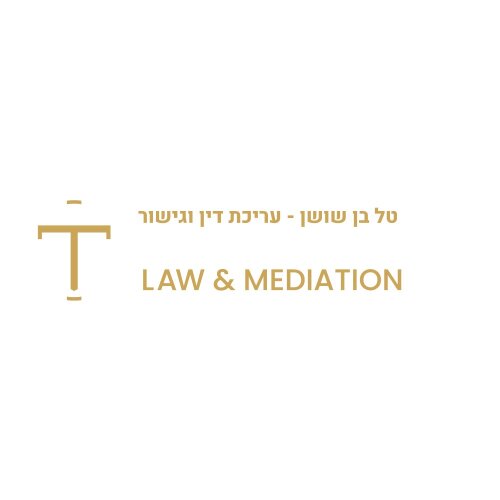Best Government Relations & Lobbying Lawyers in Israel
Share your needs with us, get contacted by law firms.
Free. Takes 2 min.
Or refine your search by selecting a city:
List of the best lawyers in Israel
About Government Relations & Lobbying Law in Israel
Government relations and lobbying in Israel involve interacting with government officials, legislators, and regulators to influence public policy and decision-making. Due to Israel's unique political landscape, which includes a parliamentary system and coalition governments, strategic lobbying efforts can play a significant role in shaping legislation and regulatory frameworks. The sector is closely regulated to ensure transparency and integrity, with rules requiring lobbyists to register and disclose their activities.
Why You May Need a Lawyer
Engaging in government relations and lobbying in Israel can be complex and necessitates a strong understanding of the legal and regulatory environment. Common situations where legal assistance might be required include:
- Ensuring compliance with registration and disclosure requirements for lobbyists.
- Interpreting and navigating the dynamic political landscape and legislative environment.
- Developing strategies to effectively communicate and negotiate with government officials and agencies.
- Handling disputes or legal issues arising from lobbying activities.
- Advising on ethics and conflict of interest considerations.
Local Laws Overview
Lobbying in Israel is governed primarily by the Lobbyists Act, which outlines the rules regarding lobbyist registration, transparency, and conduct. Key aspects of the local laws include:
- Lobbyists must register with the Knesset, detailing their clients and interests they represent.
- Periodic disclosure reports are required to ensure ongoing transparency.
- Specific guidelines govern interactions with public officials to prevent undue influence and maintain integrity.
- Ethical guidelines must be followed to avoid conflicts of interest.
- There are consequences for non-compliance, including fines and restrictions on lobbying activities.
Frequently Asked Questions
What is considered lobbying in Israel?
Lobbying in Israel is defined as activities aimed at influencing legislative, executive, or regulatory decisions by governmental bodies and officials.
Who needs to register as a lobbyist in Israel?
Any individual or organization engaging in lobbying activities must register with the Knesset as a lobbyist, including detailing their clients and the interests they aim to influence.
How often are lobbyists required to file disclosure reports?
Lobbyists must file periodic reports, typically on a quarterly basis, to maintain transparency of their activities and financial expenditures related to lobbying.
What are the penalties for non-compliance with lobbying regulations?
Penalties for non-compliance can include fines, suspension of lobbying privileges, and potential legal action depending on the severity of the violation.
Can foreign interests lobby within Israel?
Yes, foreign interests can engage in lobbying in Israel, but they must adhere to the same registration and disclosure requirements as domestic lobbyists.
What ethical guidelines must lobbyists follow?
Lobbyists in Israel must adhere to ethical guidelines to prevent conflicts of interest, ensure transparency, and maintain integrity in their dealings with government officials.
Are there restrictions on gifts or contributions to government officials?
Yes, there are strict regulations that restrict gifts or contributions to government officials to prevent undue influence and maintain ethical standards.
How can lawyers help in government relations and lobbying?
Lawyers can help navigate complex regulations, ensure compliance, provide strategic advice, and manage legal risks associated with lobbying activities.
What is the process for resolving disputes arising from lobbying activities?
Disputes can often be resolved through negotiation, mediation, or, if necessary, legal proceedings, all of which may require legal expertise.
Is there a difference between public and private sector lobbying?
Yes, while both sectors engage in lobbying, public sector lobbying often involves advocating for policy changes, whereas private sector lobbying may focus more on protecting business interests.
Additional Resources
Those seeking assistance in government relations and lobbying in Israel may find the following resources helpful:
- The Knesset's Official Website - for regulations and registration information.
- The Israel Lobbying and Advocacy Association - for guidance and professional standards.
- Professional legal organizations specializing in governmental affairs and regulatory compliance.
- Seminars and workshops on lobbying best practices and legal updates.
Next Steps
If you need legal assistance in government relations and lobbying, consider taking the following steps:
- Identify your specific legal needs related to lobbying activities.
- Consult with a lawyer specializing in government relations and lobbying in Israel to understand your obligations and rights.
- Ensure all registration and disclosure documents are accurate and up-to-date to maintain compliance.
- Develop a strategic plan for engaging with government officials and regulatory bodies.
- Stay informed of changes in lobbying laws and regulations through continuous education and professional development.
Lawzana helps you find the best lawyers and law firms in Israel through a curated and pre-screened list of qualified legal professionals. Our platform offers rankings and detailed profiles of attorneys and law firms, allowing you to compare based on practice areas, including Government Relations & Lobbying, experience, and client feedback.
Each profile includes a description of the firm's areas of practice, client reviews, team members and partners, year of establishment, spoken languages, office locations, contact information, social media presence, and any published articles or resources. Most firms on our platform speak English and are experienced in both local and international legal matters.
Get a quote from top-rated law firms in Israel — quickly, securely, and without unnecessary hassle.
Disclaimer:
The information provided on this page is for general informational purposes only and does not constitute legal advice. While we strive to ensure the accuracy and relevance of the content, legal information may change over time, and interpretations of the law can vary. You should always consult with a qualified legal professional for advice specific to your situation.
We disclaim all liability for actions taken or not taken based on the content of this page. If you believe any information is incorrect or outdated, please contact us, and we will review and update it where appropriate.
Browse government relations & lobbying law firms by city in Israel
Refine your search by selecting a city.
















